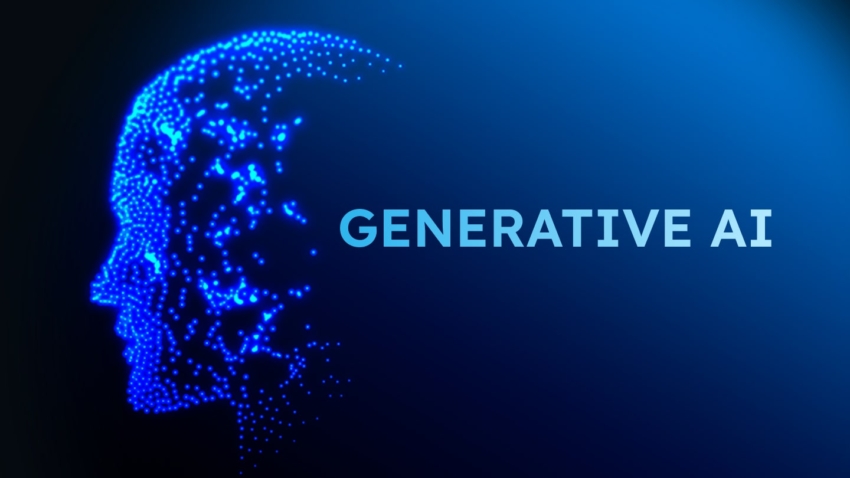
Changing Pharmaceutical Marketing With The Use Of Generative AI
The pharmaceutical sector in the pharmaceutical industry, generative AI is playing an important role in redefining an organization’s marketing possibilities. From speeding up the process of gaining insights to enhancing the first and last mile content creation and ensuring that content is compliant with medical-legal reviews, the generative AI has made pharmaceutical marketers more effective
Overcoming Hesitation and Using Artificial Intelligence Generative in Pharma
Generative artificial Intelligence (gen AI) use cases have revolutionized the way many businesses create content and campaigns. However, its use within the pharmaceutical industry has been hampered because of previous digital transformation issues. Today, pharmaceutical leaders and marketers are uneasy about embracing artificial intelligence generatively, citing that there is a huge difference between what they claim and what actually gets provided.
Positively, a lot of pharmaceutical companies are taking lessons from the early AI adopters about how to efficiently incorporate a generative AI into their process. Furthermore, strategic partnerships with marketing consulting firms, as well as more knowledge of the potential of generative AI to improve the efficiency and quality of their processes, have helped pharmaceutical marketers increase their confidence. The technology has the promise to simplify complex regulatory processes as well as personalize communications with patients at an unprecedented scale. However, finding the optimal application scenario for the generative AI for each application requires a careful eye and an effective implementation plan.
Effective Insight Generation Through AI
Insights have the potential to lead to greater value creation. But the work up to now has been limited. The silos of market research information quarterly reviews of business sales force reports, surveys that are compiled by medical professionals working in dialogue with health professionals (HCPs) as well as dashboards as well as presentations have left marketers begging to know more. The manual processes are typically expensive, time-consuming, and vulnerable to bias from humans. With huge amounts of unstructured and structured information at their disposal, pharmaceutical businesses require experts to draw useful information.
While some companies are the old ways of creating insights, others are investing in insights agents and interfaces that will help them extract insights significantly faster.
Generative AI models are equipped with the ability to process data in real-time, which allows them to process large quantities of data gathered from various sources, including transcripts from call centers and dashboards, as well as transcripts of qualitative research to discover patterns and insights in real-time.
Gen AI, for instance, can assist in analyzing brand perception and help understand the impact of HCP and patient sentiments to detect real-time changes at the press of an icon. Pharma companies can also incorporate their research transcripts as well as secondary data into these dynamic AI models, empowering their marketing teams with the appropriate questions and receiving real-time responses.
Streamlining First-Mile Content Creation
First-mile content in marketing for pharma is the process of coming up with concepts and creating high-quality, appealing, compliant materials that could comprise brochures, awareness and educational materials, among others.
Traditionally, the process of creating content for the first mile has been costly and time expensive, and required collaboration between creative agencies, medical writers reviewing weeks, revisions, concepts, and concepts.
AI could revolutionize the world by automating and speeding up the creation of content. Marketers can train their models to create creative content and produce marketing materials that are scientifically accurate and reduce time and expense significantly.
Beyond the brief, with carefully guided prompting, image-generating platforms such as Midjourney, DALL-E, and Firefly are also able to transform ideas into images and sketches, allowing teams to produce first-mile content quicker and concentrate on a strategic approach to storytelling.
Although collaboration with agencies is still essential in the production of first-mile content, improving the quality of copy and images with AI can reduce costs and be put back into improving outcomes for patients.
Optimizing Last-Mile Content Personalization
As pharmaceutical companies are preparing for the launch of full-scale adoptions, final-mile creative concept development is becoming more important.
The last mile content is the final and most powerful copywriting that will be delivered to the customer at the point of purchase. This is also the place where messages, as well as creative content, are honed and personalised to convey an appropriate message to the appropriate audience.
For instance, various teams across the globe may wish to document diverse factors that are ethically relevant for their particular audience. In some cases, the model or setting might not be culturally appropriate.
Creative and content-based use cases remain an important aspect of generative AI in the field of pharma marketing. Several organizations are currently launching pilots and testing creative messaging that is as specific as it can be. Additionally, AI models can translate and adapt content to various regions and take into consideration the best practices in copyright law and regulations.
Transforming Medical-Legal-Regulatory Review

Medical-legal-regulatory (MLR) review is considered one of the most challenging processes in pharma marketing. It is crucial to ensure that marketing and promotional content is legal, solid, meets high ethical standards, and is scientifically accurate and complies with regulatory standards prior to public announcement. Marketers believe that prioritizing this step is crucial to enhancing efficiency and safeguarding the reputation and integrity of the business.
The process has traditionally been lengthy, taking between one or two months for each promotional item, as well as multiple rounds of examination by legal, medical as well and regulatory departments. Additionally, each individualization process and every version of the same product increased the MLR workload.
Generative Artificial Intelligence is revolutionizing MLR by enabling first-draft feedback. AI algorithms can identify possible compliance issues, highlight the messages, highlight off-label or potentially risky content, a nd then auto-score updates to identify items that require a more thorough examination.
Future of Pharmaceutical Marketing Using the Power of Generative AI
With better artificial intelligence (AI) models that are generative AI models, marketers can also draw lessons from previous medical and regulatory opinions and draft messages and content that are compliant. So, speeding approvals and establishing a seamless, data-driven compliance process that will help companies gain an edge over competitors.
The excitement surrounding the use of generative AI for pharmaceutical marketing is growing rapidly, particularly with marketers eager to discover new possibilities. Many leaders believe that generative AI isn’t only a technological advancement, but could enhance the processes of marketing for pharma.
The key is to prioritize specific business usage cases, personalization using specific value propositions, redesigning partnerships, and retraining marketers in AI-driven generative AI usage cases.
The solution to changing the script of the field of pharma marketing is not in the adoption of AI but rather in the speed at which it can be implemented. Collaboration with top industry experts and management consulting firms that focus on life sciences and healthcare is continuing to improve the use of AI in pharmaceutical marketing.








